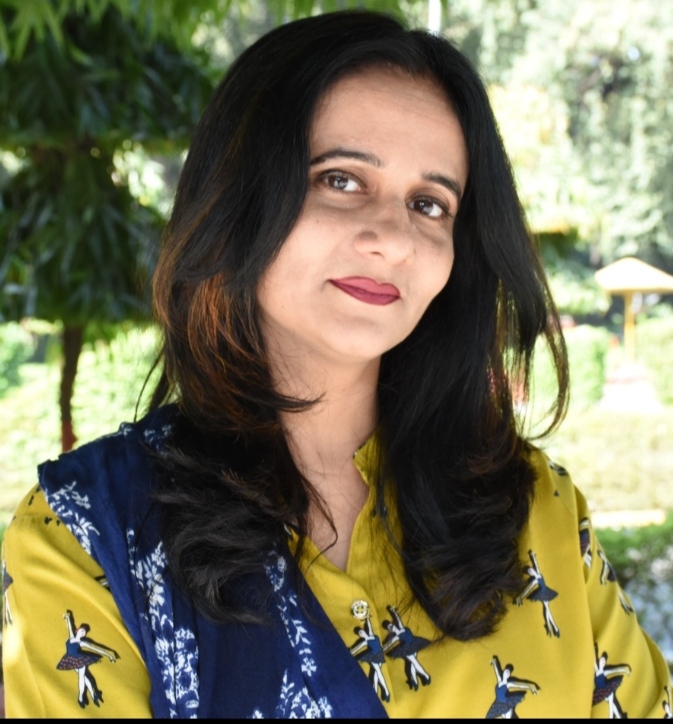
Severity: 8192
Message: ucwords(): Passing null to parameter #1 ($string) of type string is deprecated
Filename: aic/cms.php
Line Number: 7
Backtrace:
File: /home3/aicceeiv/public_html/application/views/aic/cms.php
Line: 7
Function: ucwords
File: /home3/aicceeiv/public_html/application/controllers/Aic.php
Line: 59
Function: view
File: /home3/aicceeiv/public_html/index.php
Line: 316
Function: require_once

डॉ .राजकुमारी
सहायक प्रवक्ता
ज़ाकिर हुसैन कालेज (सांध्य )
दिल्ली विश्वविधालय
आदिवासियों की परम्परा समानता ,वास्तविकता , समरूपता , एकजुटता , प्रेम सौहार्द की पक्षधर रही है । हिन्दी साहित्य के अनुरूप आदिवासी हिन्दी साहित्य का भी अपना लेखन हैं जो आदिवासियों की जीवन शैली , मुद्दों , आंदोलनों , गरिमामयी इतिहास को आदिवासी साहित्य परम्परा और उसके प्रयोजन से जोड़ता रहा है। साहित्य की हरेक विधा हमें आदिवासी लेखन से संबंधित मिलती है। फिर चाहे वह उपन्यास , कहानी , कविता आदि कोई भी आधुनिक विधा क्यों ना हो । भारत की प्रथम आदिवासी कवयित्री सुशीला सामद हैं । आदिवासी साहित्य लेखिका सुप्रसिद्ध लेखिका वंदना टेटे मानती हैं कि -"1930 के दशक में , जब हिन्दी और आधुनिक हिन्दी कविता अपने बचपने में ही थे, झारखंड के सुदूर इलाके चाईबासा में सुशीला सामद हिन्दी कविताएँ लिख रही थी । इस दौर में हिन्दी के पटल पर कविता के क्षेत्र में गिनी -चुनी कवयित्रियों की ही उपस्थिति थी । इसलिए अगर इस आदिवासी कवयित्री का जिक्र हिन्दी के साहित्यिक इतिहास में नहीं हैं , तो यह अनजाने होने के कारण नहीं बल्कि जानबूझ कर उन्हें उपेक्षित किया हैं । ऐसा मैं इस वास्ते भी कह रही हूँ क्यों कि सुशीला मात्र कविता ही नहीं लिख रही थी बल्कि वे एक साहित्यिक -सामाजिक पत्रिका 'चाँदनी ' का सम्पादन -प्रकाशन भी कर रही थी और तत्कालीन बिहार में गाँधी की एकमात्र आदिवासी महिला ' सुराजी ' आंदोलनकर्ता भी थी । वे बिहार विधान परिषद में एम एल सी भी रहीं और सामाजिक -सांस्कृतिक , साहित्यिक के साथ -साथ अनेक वैज्ञानिक दायित्वों का निर्वाह भी उन्होंने सुसंगठित तरीके से किया । इन ऐतिहासिक तथ्यों के आलोक में सुशीला झारखंड के जंगलों में रह रही कोई अनाम और गुमनाम शख्सियत नहीं थी । वह एक जानी -मानी और राष्ट्रीय पटल पर अपनी पुख़्ता पहचान रखने वाली सामाजिक -साहित्यिक सरोकार और राष्ट्रीय आंदोलनों में जुझारू दख़ल रखने वाली बहुचर्चित आदिवासी महिला नेत्री थी

Dr. Sadaf Fareed
Assistant Professor
Department of English, Women’s College,
Aligarh Muslim University
Nawab Sultan Jahan Begum’s contributions towards the promotion of girl’s education were exceptionally remarkable. She believed that education for girls was as much necessary as the education for boys. According to her, the key to a successful life was to educate girls and boys both. Since she paid special attention to the girls’ education, so she had started many schools specifically for girls.
Aremarkable addition to girl-education was ‘Madarsa Sultania’ which was affiliated to Allahabad School Board. Along with the prescribed syllabi, this school had the provisions for teaching Qur’an with its translation, so that the students could understand what they were reading. This provision, arranged by Her Highness Begum Sultan Jahan, clearly reflected her insightful farsightedness as studying with no understanding could be of no use for the students, be it religious education or the worldly education. However, the focus was not only on the teaching of religious education but equal importance was given to the formal education of girls. They were taught handicrafts together with other subjects, so that they could learn something and utilize that knowledge in their future lives.
Begum Sultan Jahan not only worked for the education of Muslim girls but she was concerned about the education of Hindu girls also. She wanted all the females of her ‘Riyasat’ to be educated and self-confident. For the education of Hindugirls, she had established ‘Barjeesiya Kanya Paathshala’. There, the syllabus included Hindi, English and Arithmetic as the major subjects. The reason behind establishing a separate school for the Hindu girls was that Begum Sultan Jahan felt that needs of the girls from two different and major communities of the time were diverse. While, emphasizing the need for separate schools, she said, “I have been constantly thinking about opening a school for Hindu girls because all my subjects are equal to me.” She further added:
When it comes to the progress of people, it does not suit a ruler to differentiate on the basis of religion; rather he/she should maintain equality. Therefore, as the education of Muslim girls is my passion, similarly, the educationof Hindu girls is my objective. If it was not due to certain religious requirements, I would never have established separate schools for them. However, theeducation pattern for them would be the same except for the primary classes, since these classes have a considerable portion of religious teachings. That is why, I have started this school in the name of Barjees Jahan Begum for the Hindu girls of the ‘Riyasat’.
Along with this, she fixed a scholarship for the underprivileged students of ‘Jain Shwetambar Paathshala’ too. Once, while addressing Hindu women, she said:
At this moment, I only want to say that, in India, wherever we have schools or orphanages for Hindu girls, those came into existence with the efforts of women only. Many women have spent their entire lives for the success of such institutions. These are living examples of the sweat and determination of your own sisters.I am very much sure that the women of Bhopal would also contribute to similar works of charity and goodness. I find such private and community run schools really prestigious because these are symbols of communal harmony and such institutions motivate others to work in the same direction.
Nawab Sultan Jahan Begum was a secular woman, while starting the school for Hindu girls, she observed:
This year (1907), a distinct school has been started for the benefit of Hindu girls. Their rights are similar to those of Muslim girls. The religious requirements of Hindus are totally different from those of Muslims and any education that is devoid of religion is inoperable for me.
Another milestone in this direction was the establishment of ‘Madarsa Islamia Hamidiya’. As stated above, Begum Sultan Jahan was very much involved in social cause for the welfare of the poor. Her basic interest was the upliftment of the poor and the deprived ones, for which reason, her chosen weapon was education. Though she was engrossed extensively in the worldly progress of her people, yet, at the same time, she was concerned about their other worldly accomplishments too. She herself was a religious woman. Thus, she always noticed and felt pained by the falling religious aptitude of Muslim women. Having realized the declining interest of the women in their own religious values and virtues, elementary religious education was made mandatory in the schools of Bhopal. Along with this, in the girls’ schools, the teaching of Qur’an along with its translation was made a part of the curriculum. Religious education had always been the primary concern of Her Highness. Therefore, she took all the pains to make it a part of curricula at the larger level, in almost all the girls’ schools. But, despite putting all the efforts, neither good female teachers could be arranged, nor could they manage such books which could be considered a part of syllabus. After much struggle and efforts, it was decided to begin such an institution, which could cater to the needs of religious as well as worldly education of the girls. Thus, on 5th February 1925, the foundation for such a new Madarsa was laid with all the celebrations.
Being a woman, Nawab Sultan Jahan Begum had a natural inclination towards the social and cultural development of women. During the times of Nawab Sultan Jahan Begum-it must be a hundred years or so-women were forced to remain within the four walls of home and education was inaccessible to them. Outdated customs and traditions were considered their adornment and male abuse their destiny. In such trying times, the arrival of Nawab Sultan Jahan Begum proved a boon for the women of Bhopal. As she was a woman, she was all the time working for the welfare and advancement of women. Her major concern was the awakening of women.
[This is an excerpt from my book Begum Sultan Jahan: A Quintessence of Educational Movements in Aligarh, which was published by Sir Syed Academy,Aligarh Muslim University,in 2021]